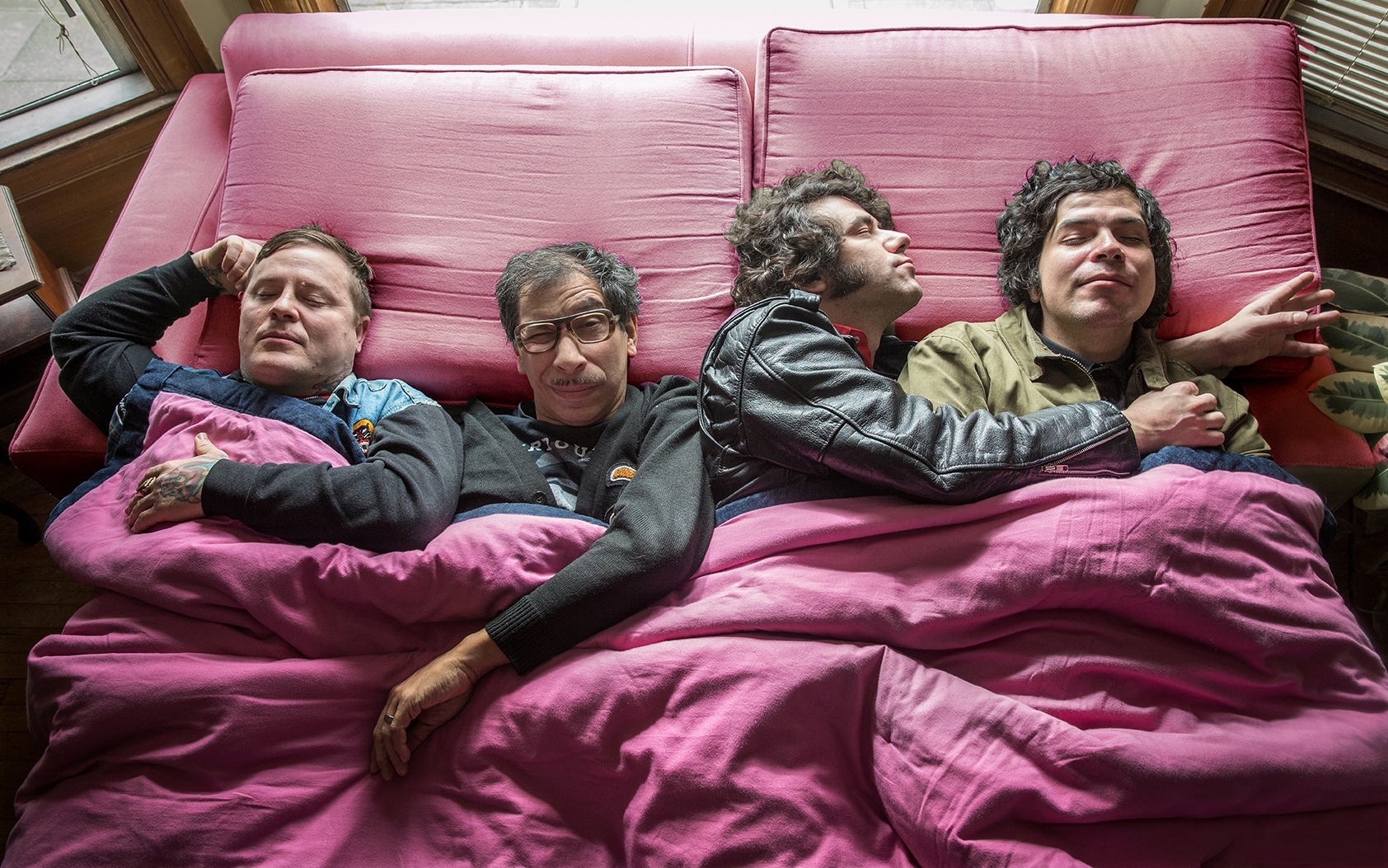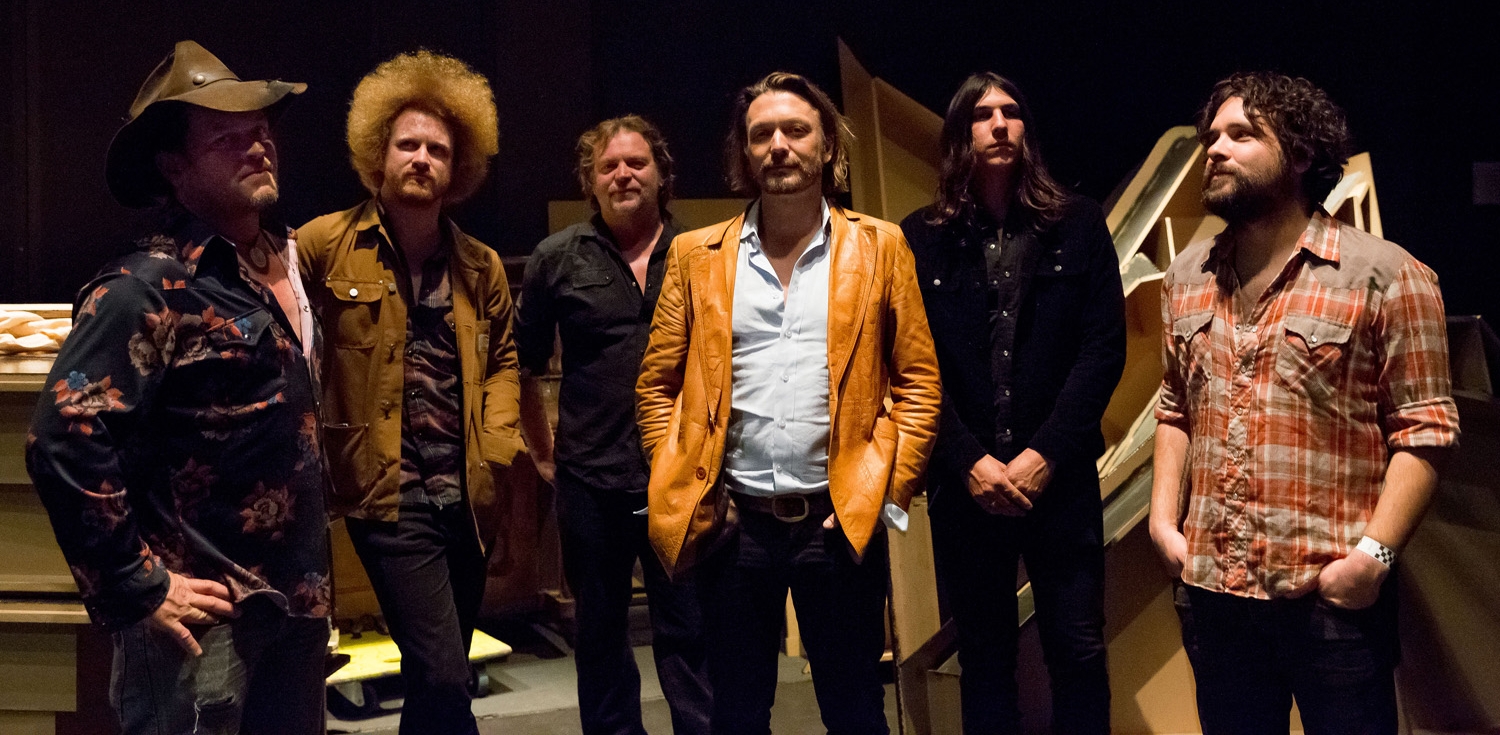“The punk scene was important because it was a gathering of misfits. People who didn’t fit in with any other group and who wanted to make themselves into monsters. It was all inclusive, it was a breaking down of anything normal,” Powers says.
As a gay Chicano youth, Powers’ deviance from the norm was both sexual and cultural. “In Los Angeles, in early punk rock, a lot of gay people came to the scene because of that inclusiveness and also because of the disillusionment with gay culture of the time, which was very strict, for us at least,” he says.
With gay culture defined – publicly, at least – by stereotypical images, punk rock offered a means of expression beyond the caricatures of the disco scene. “What we saw was that you were at the disco, or you were the vinyl shirt, moustache clone, the Marlboro Man or you were one of the Village People. But as young gay kids who came out of glam rock, David Bowie space alien, just being wild things, it wasn’t appealing. If you looked a different way, if you had a ratty Patti Smith haircut, a Ramones haircut or a British Johnny Rotten spiky do, you weren’t attractive to anyone in that scene or world.”
Powers went on to form The Gun Club with Jeffrey Lee Pierce, before being recruited to join The Cramps after the band’s move from New York to Los Angeles. When two members of The Gun Club failed to get on the plane for their 1983 Australian tour, Powers answered Pierce’s call to re-join the band. “The promoter of that tour who was probably pretty harried – we were definitely having fun, which was probably not very good for him. It was probably a lot of drinking and drugs,” Powers laughs.
To compensate for the absent Gun Club members, Spencer P Jones and Billy Pommer from The Johnnys had been drafted in on guitar and drums respectively. Both Jones and Pommer were already fans of The Gun Club, and the pair’s musical prowess and understanding of The Gun Club’s music impressed Pierce and Powers immediately. “Obviously they knew about country music and blues, they knew how to play the music in the way it was needed for those songs,” Powers says. “They understood it, they were playing and they didn’t play like heavy rock people or punk people, they played exactly the same influence that we had had, which I think drew Jeffrey to them in the first place.”
Powers spent much of the ‘80s and ‘90s in a fog of rock’n’roll decadence and drug abuse, splitting his time between LA, New York, London and Berlin, before emerging from the haze to form Kid Congo and the Pink Monkey Birds in 2006. Having previously tried to avoid repeating his past, Powers is now comfortable exploring his colourful musical pedigree through the lens of the Pink Monkey Birds.
“I’ve gone through so many periods when I’ve pushed against that, and I wanted to do something completely different to what I’ve done before,” Powers says. “Luckily by the time I got to meet the other guys in the band I was a bit over that. I’m part of all these pieces of music, movements I was involved in. That is my world, that is my audience, that is what I know best. My duty now is just to continue the work – that’s why it creeps in, but I’m still myself and keep my freak flag flying. ”
There’s a certain comic book element to Kid Congo and the Pink Monkey Birds, illustrated by some of the song titles on the band’s new album, La Araña Es La Vida including Nine Mile Blubber Pile, Karate Monkey, Coyote Conundrum, and Ricky Ticky Tocky. “If you’re not going to be able to have lyrics that are going to say something then the title should say something,” Powers says. “You want to be poetic about it, to play on words and have it fit the music. We like to laugh most of the time so they’re titles that make us laugh.”
While Powers remains attracted to the aesthetic of punk rock, he no longer sees himself as a punk rocker. “Punk was to be something to go against what was boring, over-bloated music. I keep the element of everything incredibly simple,” Powers says. “That is the key to what we’re doing – I want to say things as simple and plainly as possible. But I just don’t like to think about punk as a thing – it was a movement at a time, and it was a set of aesthetics that I still like to adhere by a lot of the time. To be able to say something and say it differently, and to provide an alternative for people. That’s what I hope our music is.”
BY PATRICK EMERY

